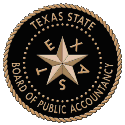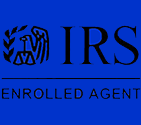Trust Fund Recovery Penalty – Killer IRS Employment Taxes
Unique Solutions to Your IRS Problems
Guaranteed*
Over 3000 Satisfied Customers Since 1980
Why Choose Us?
Held To Highest Standard

Knows the IRS Inside and Out

IRS Problems, Tax Problems, Tax Accountants, IRS Tax Attorneys, Tax Relief Help CPA, In Houston, Texas.
“Solving IRS problems has been my life’s work. After 30 years and 1,000’s of successful tax cases I can safely say, “I know the IRS Business like the back of my hand”. How would you like to never worry about the IRS again? Let my past knowledge and experience work for you”
– Joe Mastriano, CPA
Joe is a member of the Sugar Land Rotary, whose mission includes promoting integrity, fellowship, and good will.
Free Evaluation
What Our Clients Say About Us
Let Our Accounting Firm Help You Solve All Your IRS Problems…
Free Evaluation
Trust Fund Recovery – IRS Letter 1153
IRS Letter 1153 is issued and sent to a tax payer to inform him that the attempt by the IRS to collect excise taxes or federal employment taxes from the business entity named on the notice was not successful.
In other words, the business entity owes money to the Internal Revenue Service and, as such, the IRS will charge a penalty against the responsible parties.
Received an IRS Letter 1153? Contact us. Free Evaluation
Letter 1153 will ask that if you agree with the notice, then sign Part 1 of the Form 2751 that is enclosed with the letter. This form should then have to be mailed back to the IRS.
The only time I recommend that a taxpayer sign it is when I need to to file offer in compromise right away. In this case we want the IRS to forgo the appeal waiting period and make an immediate assessment.
Otherwise, why sign it? After 60 days it will be assessed anyway.
If you don’t agree with the letter, we should try to convince the revenue officer who is attempting to charge you that you are not a responsible party and therefore do not owe the tax. Review the sections on this site pertaining to “trust fund.”
But we will always make sure that an appeal is filed as a backup. You have sixty days from the date of the letter to file an appeal with the Office of Appeals.
The Trust Fund Penalty, or the letter 1153, is utilized to improve voluntary compliance with regards to the tax amount and for the purpose of smoothing the progress of tax collection. If the business entity has not paid the trust fund taxes in full, then the IRS will issue this letter to the responsible parties.
That’s the IRS’s side of the story.
I have gotten many people out of paying the trust fund penalty. Do you know what the rules are? Call 713-774-4467 and I will help you, even if you are an owner, to get out of paying the penalty.
Well, maybe!
Success depends on the facts and how we support them. Many times, the opinions the IRS uses to make you liable differs from the district court’s opinion. Different regions of the country rely on different court rulings to settle some disputes.
Basically, you must show that you did not have authority to direct the company’s funds and that you did not have knowledge of the taxes not being paid. You should send the revenue officer your appeal along with your proof that you are not liable.
More on the Trust Fund Letter 1153
According to IRC 6672, Trust Fund Recovery Penalty, is an amount equal to the amount of tax (withholding and social security) that has been collected and not paid.
I once won an appeal for a business owner who didn’t take out the taxes he was supposed to withhold in the first place. Since those taxes were not considered part of the trust fund after I liquidated his corporation, he didn’t have to pay any of the payroll taxes, interest, penalties, etc.
It really pays for businesses to get the right professional CPA help.
The letter says that the remaining FICA and withholding not collected from the business is now being charged to you.
In actuality, the IRS lately has been working both sides of the collection process at the same time.
I have had cases despite having an approved installment agreement on the corporate side, the IRS automated collections wants the responsible parties to pay or enter into an agreement to resolve the trust fund portion. This will result in collecting the same amount twice!
Don’t worry, eventually they will credit it back out.
This is an area I have had a lot of experience in. Call and let’s see what I can do for you.
Sometimes revenue officers will chase everyone who has signature authority on the bank account, any stockholder, any signer of a tax form, or listed officer, and then leave it up to you to defend yourself.
Generally, the Trust Fund Recovery Penalty is charged against a person who is supposed to account for, collect and pay for the taxes of a business firm. If you have received this letter, then you have failed to make the payment for the taxes of your business. This is probably the reason why the IRS has sent you the Letter 1153. This trust fund recovery penalty is imposed on people who:
Try to evade paying the tax.
Fail to account for tax during a particular period and who also fail to pay for the tax.
Fail to collect the correct amount of tax for a particular accounting period.
If you are considering hiring us, call Joe Mastriano, CPA 713-774-4467.
Think your IRS matter is handled?